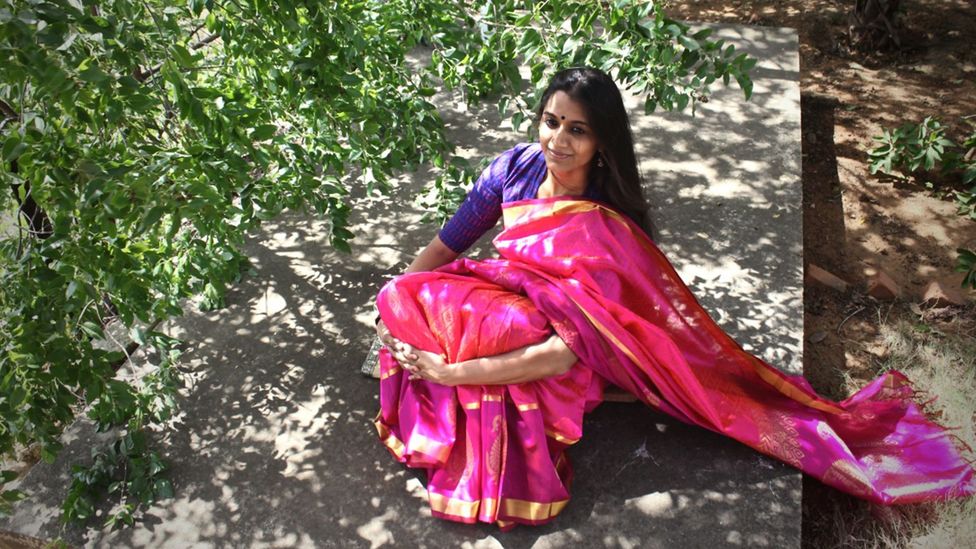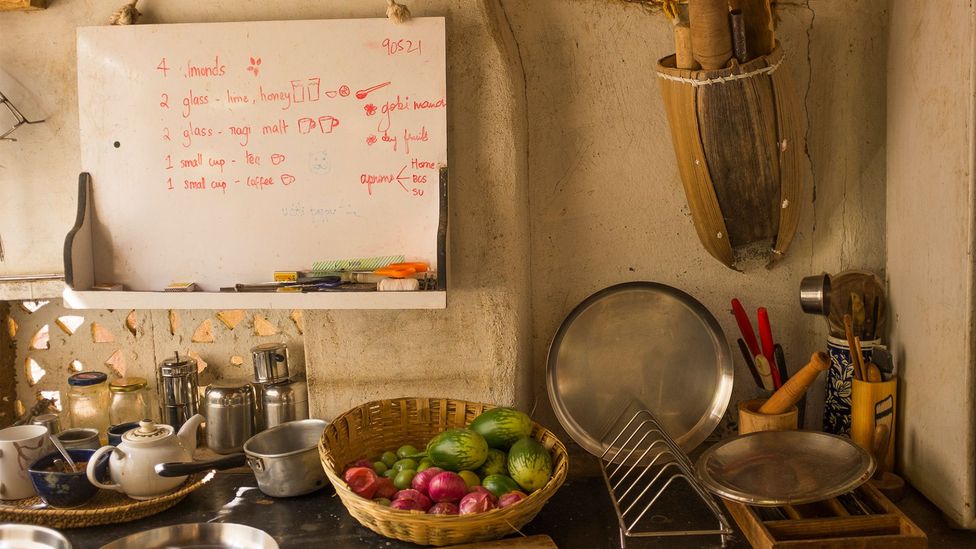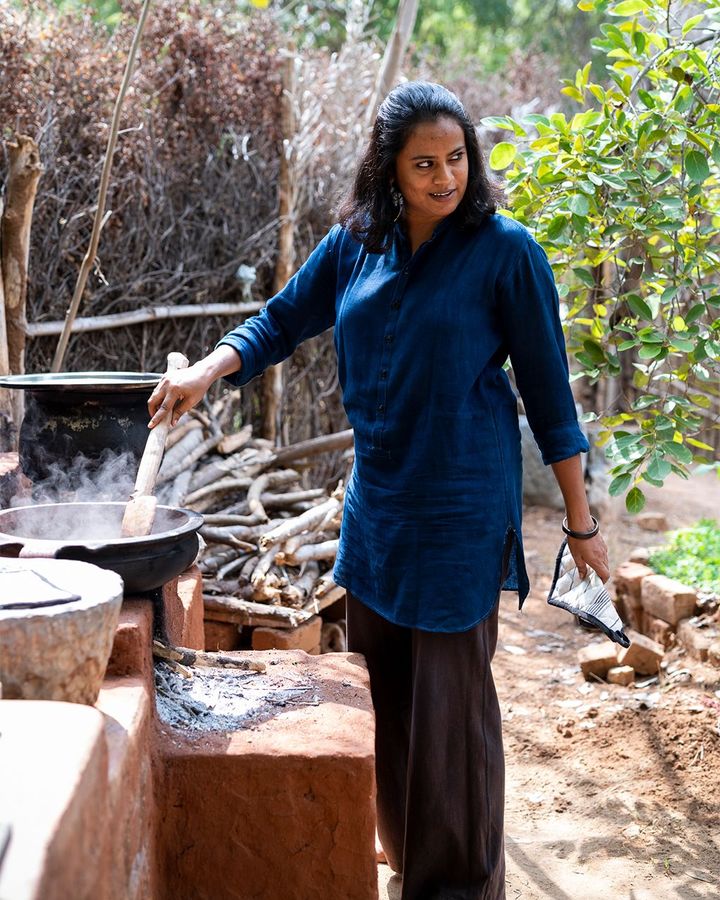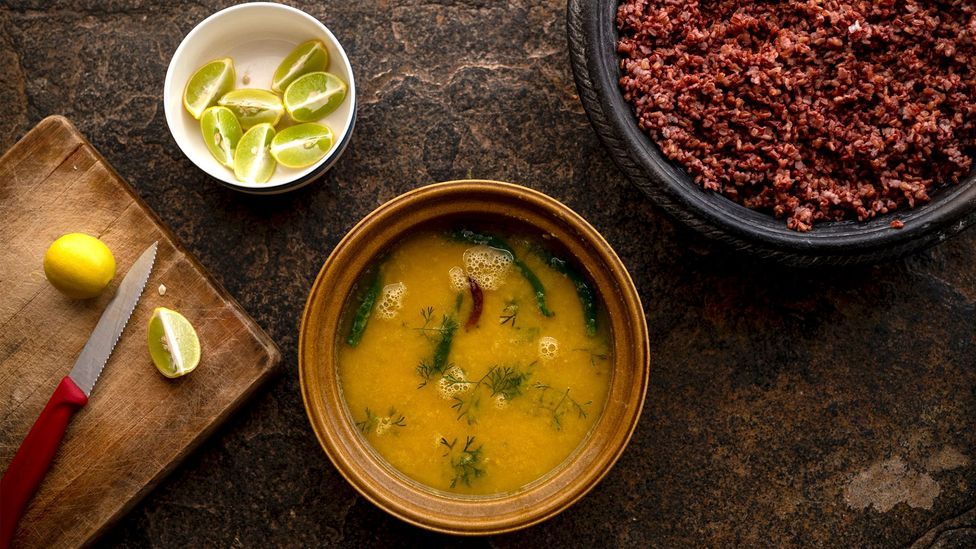The everyday dish of simmered lentils known as dal is more than just food to most Indians; it is comfort, it is nourishment and very often, it is the taste of home.
"For me, dal is comfort food and I have it every day. When I am tired, or when I'm having a bad day, dal with rice uplifts my mood in a way that nothing else can, not even coffee or chocolate," said cookbook author Archana Pidathala.

Pidathala travelled more than 11,265km all over the country to talk to these women and to watch them cook and learn their recipes (Credit: Balázs Glódi)
This is a sentiment shared by many Indians, for whom dal is not just an everyday staple, but essential comfort food, as well as an easily available source of protein, especially for vegetarians and vegans.
Dal is prepared all across India, each region with its own preferred lentil, spices, seasoning and cooking style. In the south, yellow toor dal (pigeon peas) is added to sambhar (a spicy, tangy stew); while in Punjab up north, rich and creamy dal makhani is made with whole black urad dal (black gram).
But the most common method of preparation is to cook lentils until they are almost soft, add a tempering of mustard seeds, cumin seeds and slit green chilli, and then serve the thick and soupy dal with fresh coriander as a garnish. As Pidathala said, "you can use one base ingredient to create many dishes – add gongura leaves (red sorrel greens) for a sour flavour, or make it more hearty by adding some bottle gourd."
In fact, it would not be an exaggeration to say that there are likely as many recipes for dal as there are cooks.

It would not be an exaggeration to say that there are likely as many recipes for dal as there are cooks (Credit: Balázs Glódi)
This recipe for mosur dal (red lentils) is from Pidathala's 2022 cookbook, Why Cook: Timeless recipes and life lessons from inspiring women, which collates 90 heirloom recipes from 16 women across the country, while exploring their life stories and the role of cooking. The book features friends and acquaintances (and also Pidathala's mother). While none of them cook professionally, the women are united by the way they view cooking as a nourishing act, both for themselves and for those they feed.
In her younger days, actress Arundhati Nag, for instance, never cooked the cuisine of her husband's community because she believed it meant a loss of her own identity. But after his death, she has been turning to those recipes regularly as a way of remembering him.
For Shree Mirji, whom Pidathala describes as a free-spirited, independent person who lives by herself, cooking serves as an act of self-care.
They are all also women who have embraced and now advocate a sustainable way of life. Vishalakshi Padmanabhan, for instance, not only took up organic farming but set up a farmers' cooperative to grow and sell produce through Buffalo Back Collective. She has also trained village women from Ragihalli (near the South Indian city of Bengaluru) to bake and sell their cookies in a livelihood mission.
Pidathala travelled more than 11,265km all over the country to talk to these women and to watch them cook and learn their recipes. She says her book title, "Why Cook", is a tribute to home cooks who manage to create the same tastes over and over again, through recipes that are often passed on through generations and shaped by tradition.
The dishes in the book are not based on any specific theme or category. Pidathala says that she simply asked the women to share meaningful recipes. "'How would you put yourself on a plate? How would you bring your identity to the table?' [This] is what I asked them," she explained.
Mosur, or masoor dal, as it is more commonly known, is particularly relished by the Bengali community. Manisha Kairaly – Molly to friends – contributed this recipe as a nod to her Bengali roots from her father's side.

Manisha Kairaly – Molly to friends – contributed this recipe as a nod to her Bengali roots from her father's side (Credit: Balázs Glódi)
In the book, Pidathala shared that "Molly learnt to make this soupy dal from her Bengali grandmother, who taught her that food doesn't have to be elaborate to be good, or special." A simple tempering of kalonji (nigella seeds) in mustard oil and a squeeze of lemon elevates this simple dish into one with a complex flavour profile that comes with a hit of spice and sourness at the same time.
This dal can be made within minutes and is best eaten with steamed rice or flatbread, or even on its own as a soup.

India's beloved mosur dal (Credit: Balázs Glódi)
Mosur dal recipe
Serves 4
Ingredients
200g (1 cup) de-husked split red lentils
¼ tsp turmeric powder
1 tbsp mustard oil
½ tsp nigella seeds (kalonji) (can substitute cumin seeds)
2 dried red chillies, broken in half
3-4 green chillies, slit halfway through
salt
3-4 tbsp chopped coriander leaves, to garnish
hot rice and a few lime wedges, to serve
Step 1
Wash the red lentils well and drain in a colander. Transfer to a pressure cooker, add 2½ cups of water and pressure cook to 3 whistles (about 10-12 minutes). Once the pressure settles, mash the lentils thoroughly with a masher or whisk, and stir in the turmeric powder. Set aside. (You can also boil the lentils in water for about 15 minutes, until softened.)
Step 2
To make the tempering, heat the mustard oil in a deep, heavy-bottomed pan over medium heat. Add the nigella seeds, dried red chillies and green chillies, and sauté for 20 seconds. Add the cooked lentils to the tempering, along with some salt. Mix and let it simmer for a couple of minutes. Garnish with coriander leaves. Serve hot with rice and lime wedges on the side.
BBC.com's World's Table "smashes the kitchen ceiling" by changing the way the world thinks about food, through the past, present and future.
---
Join more than three million BBC Travel fans by liking us on Facebook, or follow us onTwitter and Instagram.
If you liked this story,sign up for the weekly bbc.com features newsletter called "The Essential List". A handpicked selection of stories from BBC Future, Culture, Worklife and Travel, delivered to your inbox every Friday.
"dish" - Google News
August 29, 2023 at 04:04AM
https://ift.tt/hngeS6K
India's beloved mosur dal - BBC
"dish" - Google News
https://ift.tt/Hdolbt0

No comments:
Post a Comment